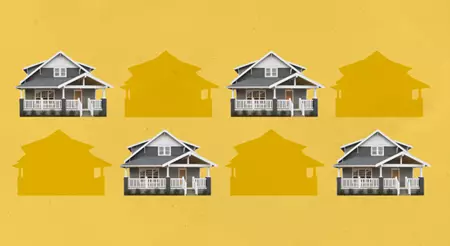Is Converting Your Home To A Short-Term Rental Worth It?

As a homeowner contemplating your next move in Southern Maine, you might be toying with the idea of using your current house as a short-term rental (STR) rather than selling it. As an alternative to a hotel stay, STRs have gained popularity as an investment option in recent years.
The concept of an STR might seem appealing, but managing one could prove more challenging than you anticipate. Here are some potential issues you might encounter if you choose to rent your house in places like Portland or Scarborough, rather than selling it.
Responsibilities That Come With A Short-Term Rental
Running an STR successfully is no minor task—it requires a significant commitment of time and effort. You'll need to handle responsibilities such as reservations, check-ins, cleaning, landscaping, and maintenance. Managing all these tasks can be quite demanding.
Moreover, STRs see a high turnover rate with guests frequently checking in and out. This frequent usage can lead to an increased rate of wear and tear on your property, meaning more repairs and replacements of furniture, fixtures, and appliances might be necessary more often than you'd think.
It's important to gauge your readiness to take on this level of commitment, especially if you plan to advertise your rental on a hosting platform. Most of these platforms have specific standards hosts must meet. A Bankrate article elaborates on this:
"Managing a rental property can be time-consuming and challenging. Are you handy and able to make some repairs yourself? If not, do you have a network of affordable contractors you can reach out to in a pinch? Consider whether you want to take on the added responsibility of being a landlord, which means screening tenants and fielding issues, among other responsibilities, or paying for a third party to take care of things instead."
All these factors are critical to consider before deciding to turn your house into an STR. If the challenges seem overwhelming, selling might be the better option.
Regulatory Considerations Of Short-Term Rentals
With the growth of the STR industry, regulations around it have also increased. Typical legal restrictions limit the number of vacation rentals in a specific area—especially prevalent in larger cities or tourist destinations such as Old Orchard Beach—where concerns about overcrowding or housing shortages for permanent residents can arise. Certain types of properties may also be restricted from being used for short-term rentals.
Many cities require homeowners to obtain a permit or license before they can rent their properties. Nick Del Pego, CEO at Deckard Technologies, highlights this aspect:
“Renting short-term rentals is considered a business by most local governments, and owners must comply with specific workplace regulations and business licensing rules established in their local communities.”
Ensure you check whether STRs are regulated or even prohibited by your local government or homeowners association (HOA) before you consider renting your home.
The Bottom Line
Transitioning from a homeowner to an STR host isn't a decision to be made lightly and requires thorough research. To discuss if selling your house might be a better alternative, let's connect today.
Categories
- All Blogs (134)
- Baby Boomers (3)
- Buying Myths (27)
- Demographics (8)
- Distressed Properties (3)
- Down Payments (4)
- Efficient Homes (1)
- First Time Home Buyers (44)
- For Buyers (85)
- For Sellers (73)
- Foreclosures (8)
- FSBO (3)
- Home Equity (4)
- Home Ownership Programs (1)
- Housing Market Update (73)
- Infographics (22)
- Interest Rates (23)
- Investing (1)
- Market Trends (1)
- Millennials (4)
- Move-Up Buyers (36)
- New Construction (3)
- Pricing (32)
- Real Estate Crash (15)
- Rent vs. Buy (8)
- Retirement (1)
- Selling Myths (31)
Recent Posts











